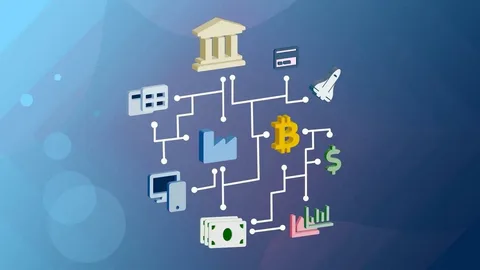Introduction
The future of finance is undergoing a profound transformation with the emergence of Decentralized Finance (DeFi) and the continued evolution of cryptocurrency. Understanding the dynamics of these technologies is essential to grasp the potential impact on traditional financial systems.
Key Components of Decentralized Finance
DeFi comprises crucial components such as decentralized exchanges (DEX), decentralized lending platforms, and yield farming and liquidity mining. These components redefine the traditional financial landscape by offering decentralized alternatives to traditional banking services.
Advantages of Decentralized Finance
The advantages of DeFi include financial inclusion and accessibility, reduced reliance on traditional banking, and enhanced security and transparency. These characteristics make DeFi appealing to a global audience seeking alternatives to traditional financial institutions.
Cryptocurrency: Beyond Bitcoin
While Bitcoin remains a significant player, the cryptocurrency landscape has diversified. The rise of alternative cryptocurrencies has expanded use cases beyond being a digital gold substitute. Innovations in blockchain technology are driving advancements in various industries.
Challenges and Risks in DeFi and Cryptocurrency
Challenges and risks in DeFi and cryptocurrency include smart contract vulnerabilities, regulatory uncertainties, and market volatility and risk management. Addressing these challenges is crucial for the sustainable growth and adoption of these technologies.
Mainstream Adoption and Integration
Institutional interest and investment are propelling mainstream adoption of DeFi and cryptocurrency. The integration of DeFi in traditional financial systems and the acceptance of cryptocurrency in everyday transactions mark significant milestones in the industry’s evolution.
Future Developments and Technological Innovations
The future holds promises of evolving blockchain technology, cross-chain interoperability, and integration of decentralized identity and finance. These developments aim to enhance scalability, efficiency, and interoperability within the decentralized finance space.
Community and Governance in DeFi
Community-driven projects play a pivotal role in DeFi, with decentralized governance models ensuring participatory decision-making. Finding the right balance between decentralization and accountability is essential for the long-term success and sustainability of DeFi projects.
Environmental Considerations and Sustainable Practices
Environmental considerations in cryptocurrency are gaining attention. The energy consumption in proof-of-work cryptocurrencies has sparked discussions about transitioning to more sustainable consensus mechanisms. The crypto community’s role is crucial in promoting and adopting sustainable practices.
Regulation and Compliance in DeFi and Cryptocurrency
Navigating the evolving regulatory landscape is a challenge for DeFi and cryptocurrency. The industry must strike a balance between fostering innovation and complying with regulatory requirements to facilitate mainstream adoption.
Education and Awareness
Promoting financial literacy in the crypto space and raising awareness about DeFi opportunities and risks are essential. Educating users fosters a knowledgeable and informed community that can contribute to responsible adoption and innovation.
Conclusion
In conclusion, the future of finance is being reshaped by DeFi and cryptocurrency. The potential for financial inclusion, accessibility, and innovation is immense. As the industry navigates challenges, responsible adoption and innovation will be key in realizing a decentralized future that empowers individuals and transforms traditional financial systems.
